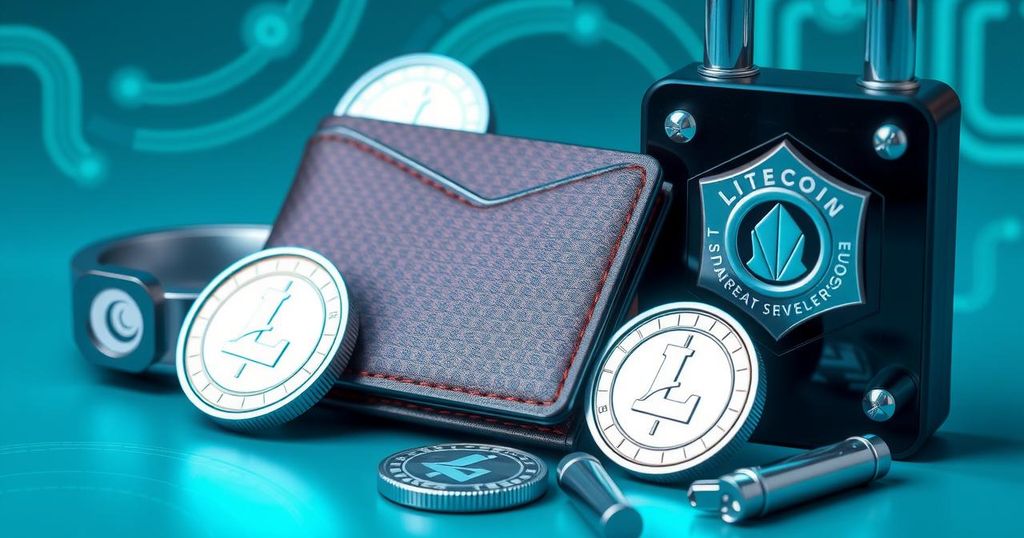Litecoin Security: How to Spot, Avoid, and Recover from Crypto Scams
Crypto scams are rampant, with Litecoin holders being frequent targets. Scammers deploy various tactics such as phishing, malware, and social engineering tricks. Users are urged to verify information, use hardware wallets, and stay informed to protect their investments. In case of a scam, quick action and thorough reporting can help mitigate losses.
Another day brings more alarming news of crypto scams targeting unwitting holders, with Litecoin (LTC) and Bitcoin (BTC) both being on the radar for cybercriminals. While Bitcoin gets the glitzy title of gold in the crypto world, Litecoin is the silver—renowned for its speed and low fees. But make no mistake, both currencies remain hot targets for scams ranging from phishing schemes to malware. This piece digs into wallet security for LTC and offers advice on steering clear of increasingly crafty scams.
Knowledge is your strongest defense against crypto scam tactics. Scammers are hardly growing less inventive; they manipulate both human urgency and system vulnerabilities to siphon your funds. Understanding how these scams function helps in identifying them, particularly when it comes to those tedious social engineering tricks that have become all too common. The mantra is simple: don’t just trust, verify. It’s a solid approach to safeguarding your Litecoin.
Phishing scams are rampant, often lurking in the guise of official emails, social media messages, or bogus Litecoin sites. Scammers commonly pull off spoofing attacks that feel so legitimate it’s easy to fall for them. They’ll carefully craft URLs that differ only slightly from trusted platforms, sly enough to fool even the most vigilant users.
So, how do you identify phishing attempts? Look for those slightly off URLs that, on first glance, seem fine. If a website requests sensitive information like your private keys or seed phrases, that’s a red flag. Double-check URLs before giving them a click. And remember—no legitimate service will ever ask for your private keys or similar data. Be smart and use bookmarks instead of just clicking on links.
Opportunity-seeking scammers thrive on the human tendency for Fear of Missing Out (FoMO). They’re whipping up Litecoin giveaways and dubious investment scams, like that age-old scheme where you send LTC to supposedly receive even more in return. They parade around as celebrities—imposters posing as figures from Charlie Lee to Elon Musk, slipping into your DMs with shady offers.
Watch out when social media starts to look suspicious—like when someone claims you need to send crypto to “verify” your wallet or pretends to be from a trusted entity. If it sounds too good to be true, well, it probably is. Always verify identities through official channels—never engage in private messages about such offers, and if things get sketchy, just back away.
Malware is another nasty piece of business. These sophisticated programs rob you blind by doing things like keystroke logging or clipboard hijacking, usually masquerading as real wallet software or browser extensions. If you want to avoid this wallet-draining software, be ultra-cautious about what you download. Stick with official sources and keep your software updated.
To truly safeguard your LTC, adopting the use of a hardware wallet should be high on your priority list—these nifty devices store your private keys offline, and yes, they are notoriously tough for hackers to infiltrate. But don’t stop there: employing robust authentication methods is equally vital. Make sure to use strong, unique passwords for every account and enable two-factor authentication (but ditch SMS-based methods; they’re vulnerable to SIM-swapping).
Oh and don’t forget to secure your backup seeds; store those offline. It’s far safer to write them down and keep them safe than risk having a screenshot on your phone.
Staying on top of software updates is crucial because using outdated versions dramatically increases attack risks. Make it a habit to regularly refresh your operating system, browser, and antivirus software to close off known vulnerabilities. Education is key! Following credible news sources and staying informed about crypto scams is crucial too. Always double-check the information before acting on it; avoid sensationalized clickbait.
But what if you’ve already fallen victim? First things first, time is of the essence. Quickly stop all communication with the scammer—don’t engage or negotiate. Just cut contact to prevent further harm. Change passwords for all affected accounts immediately, only using strong, unique ones. If your wallet’s compromised, shift your funds to a new, secure one—preferably a hardware wallet, if you can manage it.
If you suspect a device is infected, disconnect it to stop any ongoing malicious activity immediately. Speed is crucial—acting fast boosts your chances of safeguarding what’s left.
Collecting documentation is essential. Take screenshots, log transaction IDs, and gather emails, messages, and any URLs linked to the fraud. This evidence is critical, not just for your records, but also for investigators. Report the fraud to your exchange’s security team, local law enforcement, and national cybercrime units, to help in the wider fight against these scams.
In this ever-evolving crypto landscape, keeping your Litecoin secure is, ultimately, your responsibility. Protecting your digital assets relies on vigilance, using hardware wallets, and maintaining your knowledge base. By staying alert and educated, you make it increasingly difficult for those scammers to succeed.
(Painting by Eivind Pedersen, sourced from Pixabay)
In summary, staying safe with Litecoin involves a mix of vigilance, education, and the use of secure practices, like hardware wallets and solid authentication. Scammers never sleep, so neither should your guard. If you do find yourself in a compromising position, quick action to cut communication, change passwords, and report the fraud can mitigate the damage. In the end, it’s all about taking responsibility for your own crypto safety.
Original Source: hackread.com




Post Comment